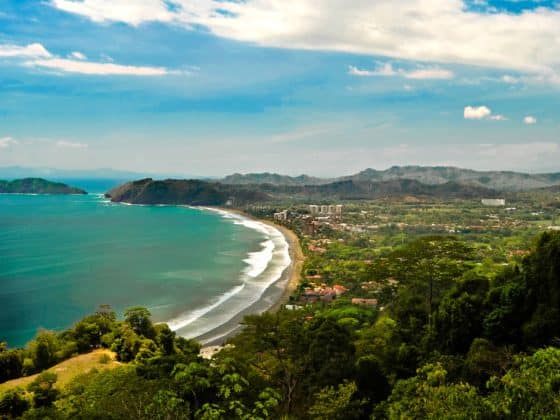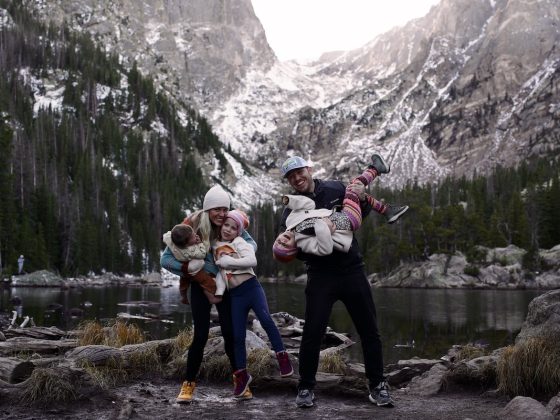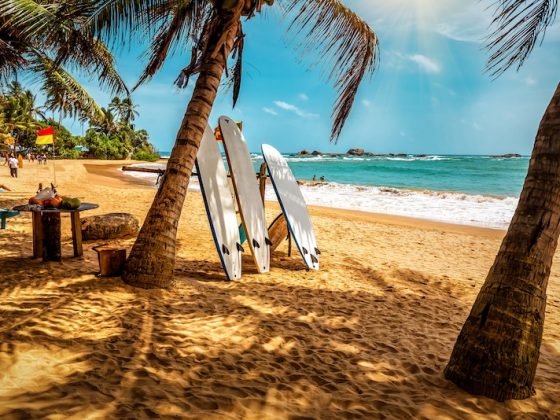The Draw of a Second Residency
Borders define where we start, but not where we have to stay.
A second residency is a permission slip for flexibility. It means having a foothold somewhere safer, sunnier, or more financially sound. It’s a way to future-proof your options in an era where governments shift policies overnight, costs of living climb, and digital work has erased borders.
For some, it’s about freedom of movement: an EU residence card that unlocks Schengen travel. For others, it’s about tax strategy, diversifying income sources, or protecting global assets. And for many others, it’s about lifestyle: being able to spend winters on the coast, summers in the hills, or simply choose where to slow down when the time feels right.
Residency programs today aren’t reserved for the ultra-wealthy. From Panama’s $1,000-a-month retiree visa to Portugal’s D7 passive-income route, the world has opened up a menu of options that suit different incomes, goals, and timelines. Some require investment; others simply proof of income and good standing.
This article brings them all together. Below, you’ll find a country-by-country breakdown of the best current second-residency programs: what they cost, how long they take, who they’re for, and what life looks like once you get there.
So, before you start gathering bank statements or scanning flight routes, take a few minutes here. Compare, dream a little, and then plan with clarity.
*Note: All data reflects 2025 program details. Check official sources for the most recent updates before making a decision.
How to Choose the Right Second Residency for you
There’s no single “best” program. It all depends on what you need it to do for you. To help you, here’s a quick roadmap before diving into the country breakdowns below.
1. Start with your “why.”
What’s driving you? Are you chasing a better lifestyle, planning a long-term escape route, lowering your taxes, or investing for returns and global mobility? Your motivation determines the category of residency that fits best: retirement, digital nomad, or investment-based.
2. Match it to your work status.
If you earn remotely, look for digital nomad or expat visas that allow foreign-sourced income.
If you’re focused on wealth diversification, residency-by-investment or Golden Visa programs will make more sense.
If you’re retiring abroad, explore pension-based visas that favor stable, passive income.
3. Understand your tax posture.
High-tax countries like Spain, Portugal, and Malta often offset costs with perks: tax exemptions for expats, high-quality healthcare, and EU access.
Territorial or no-tax jurisdictions like the UAE or Panama let you keep more of what you earn but may require more self-management for banking and compliance.
4. Decide how fast you want permanence.
Some countries offer permanent residency from day one (like Malta or Cyprus). Others start with temporary status that can be renewed toward permanent residency or citizenship (Spain, Portugal, Greece, UAE). The patience you have for bureaucracy matters here.
5. Set your budget and your presence level.
Some programs only ask for proof of income; others demand a lump-sum property or fund investment. Pay attention to physical presence rules: some residencies require you to spend time in-country each year, while others don’t.

Once you’ve mapped out your priorities, it’s time to compare your options side by side. Below, you’ll find the world’s most accessible and strategic second-residency programs, broken down by cost, lifestyle, requirements, and tax outlook, so you can see where your future might fit.
Country-by-country guide
Portugal
Best for: EU base via investment funds, retirees with passive income, or remote workers preferring the D7/D8 ecosystem.
Target audience: Remote professionals, retirees, and anyone drawn to a slower European lifestyle with modern comforts.
Main routes & minimums:
- Golden Visa: Investment of €500,000 in qualified funds, or €250,000–€500,000 in cultural, research, or business projects. (Real estate no longer qualifies.)
- D7 Visa: Proof of passive income around €870/month plus savings and private health coverage.
Taxes: The classic NHR program has been replaced by NHR 2.0 (IFICI), a selective regime for high-value professions. Standard residents are taxed progressively, but Portugal’s treaty network helps avoid double taxation.
Lifestyle: Tranquil vibe. Mornings start with espresso at a corner café; afternoons unfold under Atlantic light. Lisbon and Porto blend creative energy with European infrastructure, while the Algarve offers ocean views and golf-course serenity. The cost of living remains lower than in most of Western Europe, and locals are known for their hospitality and calm.
Pros: EU mobility, five-year citizenship track, diverse climate and culture.
Cons: Bureaucracy can be slow; tax perks are narrower under the new regime.
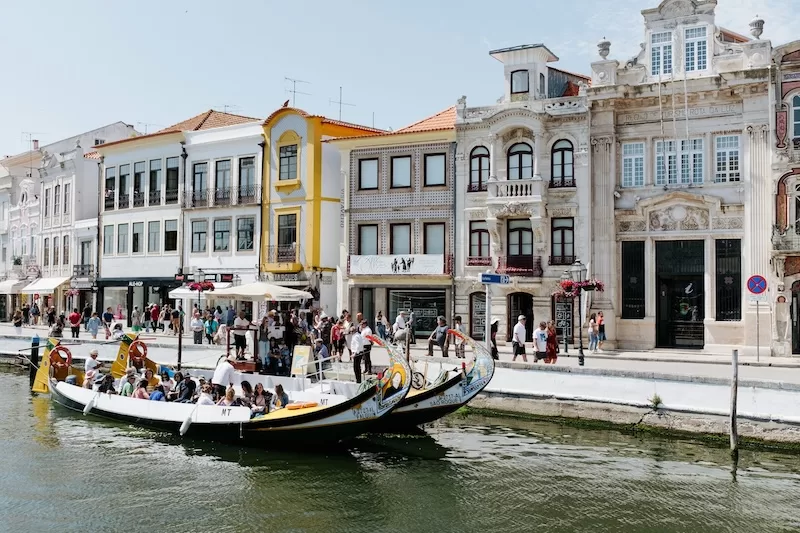
Spain
Best for: Remote workers wanting EU life + a clear expat tax regime; families seeking schools/healthcare.
Target audience: Digital nomads, families, and those seeking cultural depth with strong infrastructure and healthcare.
Main routes & minimums:
- Digital Nomad Visa: Monthly income around €2,750–€2,800, income set at ~200% SMI; 2025 guidance ~€2,76k–€2,70k+/mo depending on calculation basis; dependents increase it, valid for up to five years.
- Non-Lucrative Visa (NLV): 400% IPREM, proof of passive income of €28,000+/year, plus additional funds for dependents.
Taxes: The Beckham regime offers a flat 24% on Spanish-source income up to €600k for six years for qualifying expats. Outside this, Spain’s standard income tax rates apply.
Lifestyle: Spain’s appeal lies in balance. You get Mediterranean light, accessible transport, and food that turns every meal into an event. Madrid offers art and energy; Barcelona mixes city life with beaches; smaller cities like Valencia or Granada provide a calmer vibe without isolation. The work-life balance is real: siestas aren’t a myth, just a lifestyle choice.
Pros: Reliable infrastructure, excellent healthcare, great schools, community-oriented living.
Cons: DN income is audited; national tax rates high outside Beckham; Golden Visa property route is ending/ended.
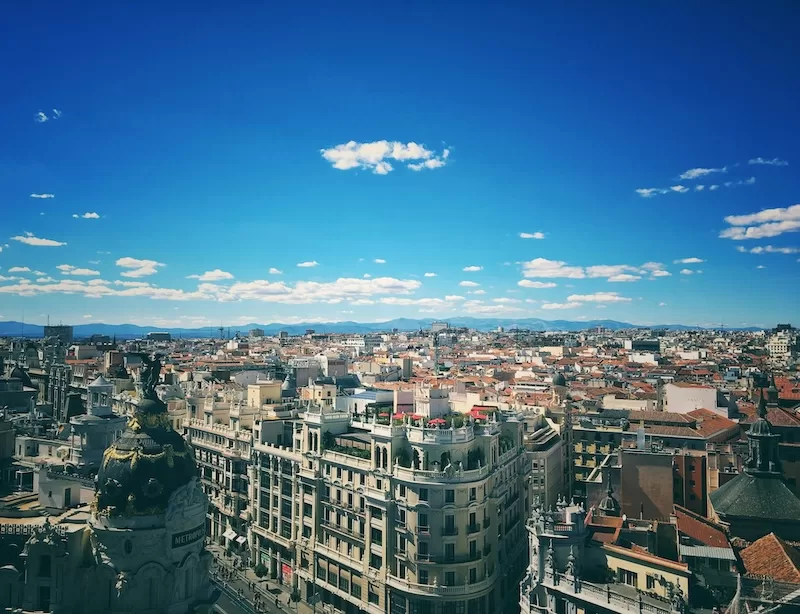
Greece
Best for: EU residency with property investment flexibility (but note 2024+ thresholds).
Target Audience: Investors seeking EU access, a warm Mediterranean climate, and the chance to blend modern life with timeless culture.
Main routes & minimums:
- Golden Visa: €800k in prime zones (central Athens/Thessaloniki/Mykonos/Santorini), €400k in others, with €250k limited to specified conversion/restoration projects. Property size minimums apply (e.g., 120 m²).
- Digital Nomad Visa: Minimum €3,500/month net income, increases with dependents.
Taxes: Standard EU income tax system, though new residents can apply for beneficial regimes such as a 50% tax exemption for up to seven years on foreign income.
Lifestyle: Greece has a mix of island calm and cosmopolitan energy. Athens is dynamic and surprisingly affordable, while Crete, Rhodes, and Corfu cater to those chasing sea views and slow living. The climate is mild, produce is fresh, and daily expenses (outside tourist zones) stay reasonable.
Pros: Low property taxes vs. peers; quick approvals historically, strong lifestyle appeal, growing economy, Schengen access.
Cons: Bureaucracy and varying property laws by region; inventory constraints at low thresholds.
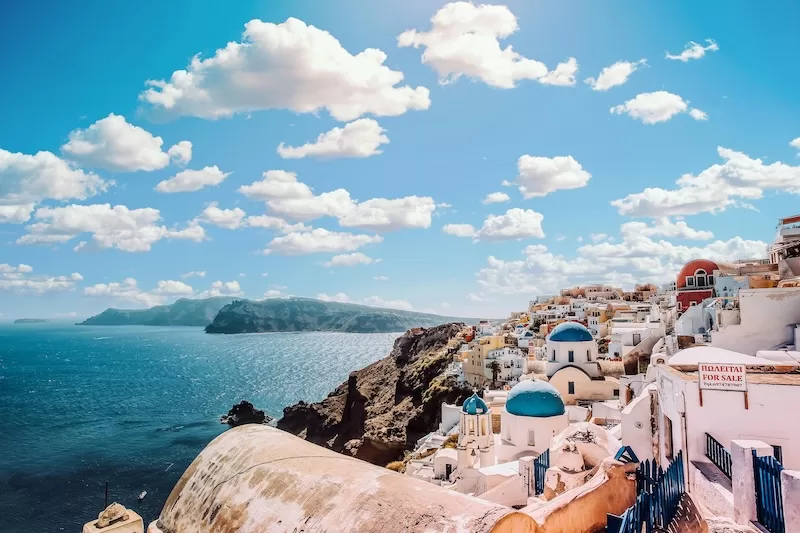
Malta
Best for: Immediate EU permanent residency through structured investment and contribution.
Target Audience: Investors seeking English-speaking, stable island living with Schengen access and Mediterranean climate.
Main routes & minimums:
- MPRP (Malta Permanent Residence Program): Property purchase or lease, government contribution, charitable donation, and proof of €500,000 total assets (minimum €150,000 liquid).
Taxes: Malta uses a remittance-based tax system; foreign income not brought into the country remains untaxed. Corporate frameworks are attractive for investors and business owners.
Lifestyle: Compact and coastal, Malta offers sunny weather, historic towns, and a strong expat community. English is an official language, making integration easy. Life revolves around harbor cafés, beaches, and year-round cultural events.
Pros: PR from day one, stable EU jurisdiction, English widely spoken.
Cons: High summer density, limited open space, rising real estate costs.
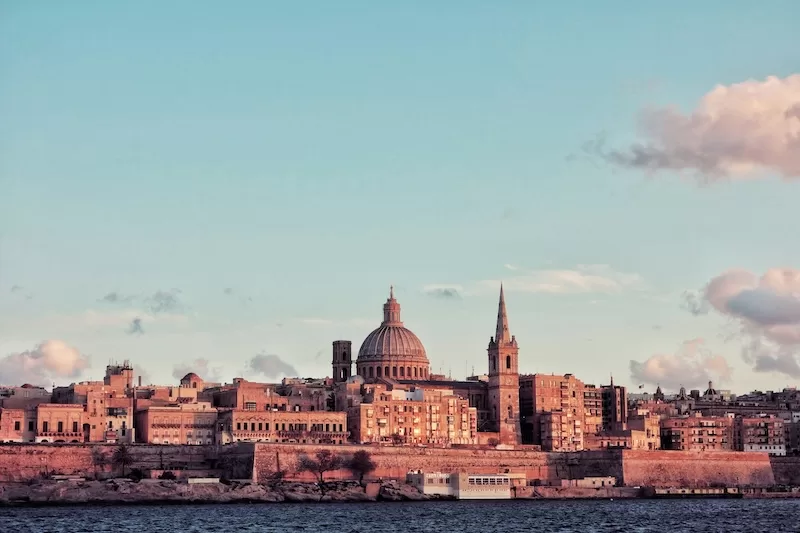
Cyprus
Best for: Fast-track EU permanent residency with low-tax structure and Mediterranean lifestyle.
Target Audience: Investors, business professionals, and families seeking safety, warm climate, and accessible property options.
Main routes & minimums:
- Permanent Residency by Investment: Minimum €300,000 in new residential property or qualifying fund/business, plus proof of €50,000/year income for the applicant. Fast-track under Reg. 6(2).
Taxes: Non-domiciled residents are exempt from taxes on dividends and foreign-sourced income for up to 17 years. Corporate and personal income taxes are comparatively low.
Lifestyle: Cyprus blends coastal resort life with everyday practicality. English is common, healthcare is improving, and the cost of living is manageable. Its beaches and inland villages create an easy mix of leisure and familiarity.
Pros: Fast-track PR, English-friendly society, efficient tax framework, simple renewal.
Cons: Not in Schengen yet; must maintain qualifying investment; limited public transit.
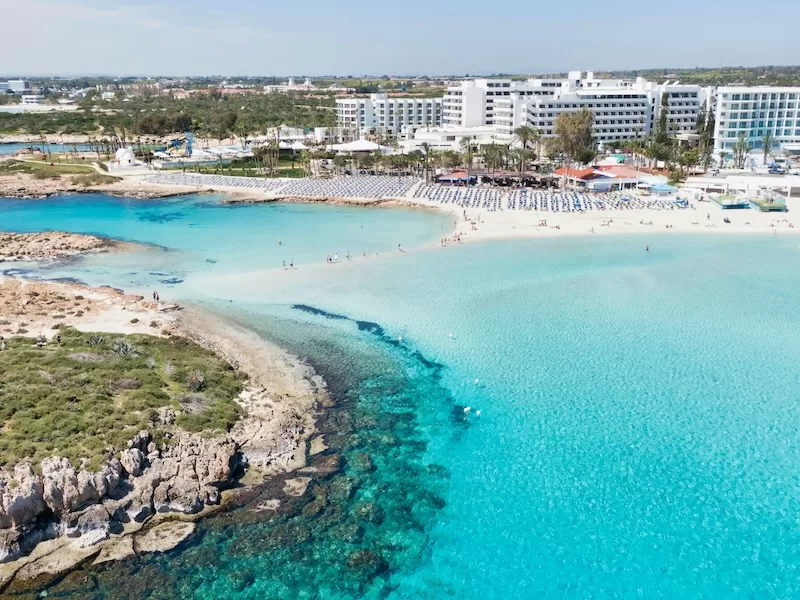
UAE (Dubai/Abu Dhabi)
Best for: Long-term stability in a zero-income-tax jurisdiction with global connectivity, renewable, and family sponsorship.
Target Audience: Entrepreneurs, investors, and high-earning professionals seeking tax freedom and premium infrastructure.
Main routes & minimums:
• Golden Visa: AED 2 million property investment or other approved routes; valid for 10 years.
• Remote Work Visa: Monthly income requirement between $3,500–$5,000, depending on emirate. See GDRFA and official portals.
Taxes: No personal income tax. A 9% corporate tax applies only to profits exceeding AED 375,000, making it one of the most business-friendly environments globally.
Lifestyle: The UAE combines futuristic ambition with safety and order. Dubai’s skyline, Abu Dhabi’s cultural scene, and Sharjah’s calmer pace give residents options. Summers are intense, but daily life runs smoothly with world-class healthcare, education, and entertainment.
Pros: No income tax, modern infrastructure, international community, excellent transport links.
Cons: High housing costs; hot summers; cultural restrictions in some contexts.
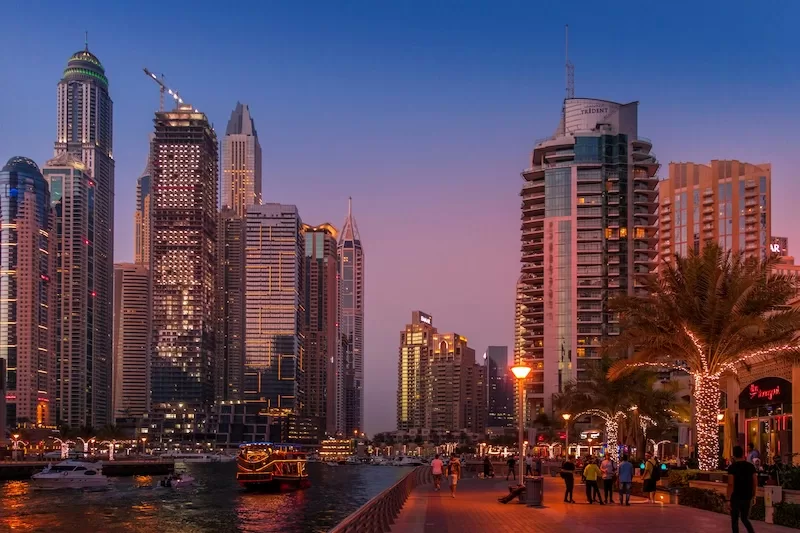
Panama
Best for: Residency in a dollar-based, investment-friendly economy with regional connectivity.
Target Audience: Retirees, entrepreneurs, and professionals seeking low taxes, banking access, and tropical climate.
Main routes & minimums:
• Pensionado Visa: Lifetime pension of $1,000/month (or $750 with $100k property purchase), dependent add-ons. Perks include national discounts.
• Friendly Nations Visa: now ties to $200k property or $200k 3-year time deposit or job offer, plus bank deposit & fees
Taxes: Territorial system, foreign-sourced income is tax exempt. Pensionado residents receive broad discounts on healthcare, utilities, and transport.
Lifestyle: Panama offers modern comfort with Caribbean flair. The capital’s skyline sits minutes from rainforest and Pacific beaches. Expats find safety, convenience, and community in areas like Boquete and Coronado. English is common and daily life is affordable compared to most of the region.
Pros: U.S. dollar economy, easy air connections, investor-friendly policies.
Cons: Bureaucratic delays, FNV rules tightened, limited rural healthcare, humid climate year-round.
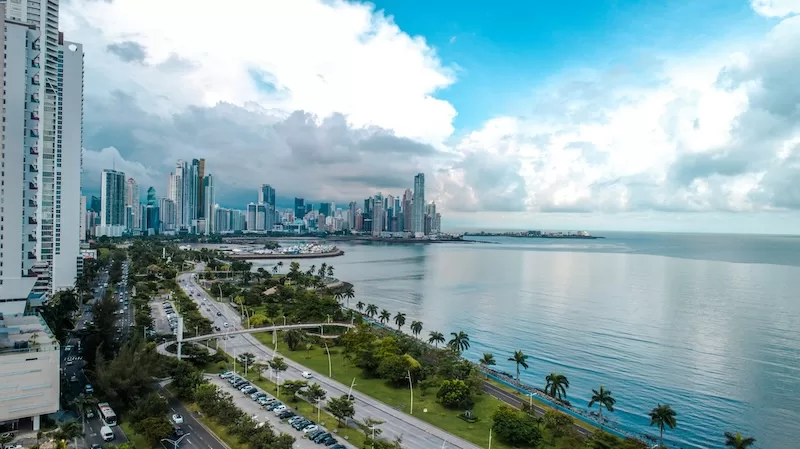
Belize
Best for: Caribbean residency with English language, light bureaucracy, light physical-presence rule, and territorial taxation.
Target Audience: Retirees and digital workers wanting affordable island or coastal living in a relaxed culture.
Main routes & minimums:
• Qualified Retired Persons (QRP): Age 40+, proof of $2,000/month income from foreign sources, and stay of 30 consecutive days per year. QRP is renewable annually; PR is available after 5 years of legal stay.
Taxes: QRP residents are exempt from taxes on all foreign-sourced income, capital gains, and inheritances.
Lifestyle: Belize offers a laid-back rhythm: clear waters, coral reefs, and small-town friendliness. Ambergris Caye is the expat favorite, while the inland Cayo District draws nature lovers and adventure travelers.
Pros: English-speaking, favorable tax rules, simple banking, straightforward residency maintenance.
Cons: Limited healthcare options, medical specialists often in Mexico, slower infrastructure development, smaller job market.
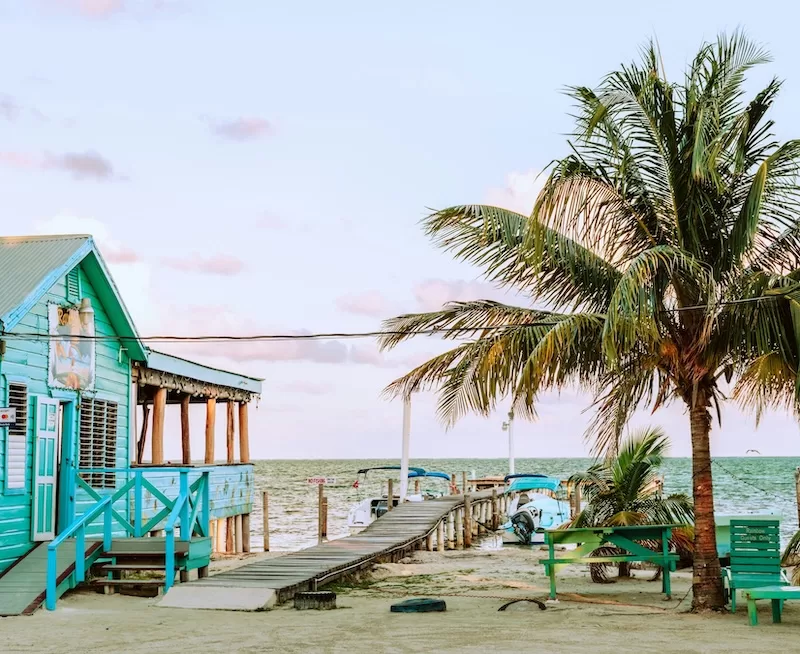
Nicaragua
Best for: Affordable lifestyle residency with low entry requirements and warm community life.
Target Audience: Retirees and remote professionals seeking low living costs, beachfront access, and relaxed residency conditions.
Main routes & minimums (2025):
• Pensionado Visa: Minimum US$600/month verified lifetime pension.
• Rentista Visa: Minimum US$750/month guaranteed income from investments or business abroad.
Taxes: Territorial system: foreign income not taxed. Local taxes modest and straightforward.
Lifestyle: Nicaragua offers wide beaches, volcanic landscapes, and a slower rhythm of life. Coastal communities like Gran Pacifica or San Juan del Sur attract expats for their balance of affordability and quality of life. Infrastructure is improving, and private healthcare and internet access are accessible in key areas.
Pros: Low cost of living, territorial tax regime, friendly immigration process.
Cons: Political perception affects investor confidence; limited global mobility.
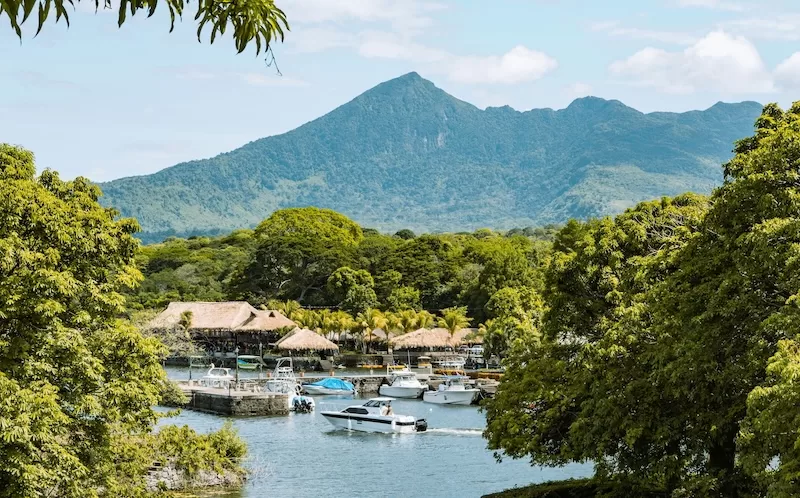
Mexico
Best for: Flexible, proximity-based residency with cultural vibrancy and cost efficiency.
Target Audience: Remote workers, retirees, and investors wanting diverse regional choices and lower living costs.
Main routes & minimums:
• Temporary Residency: Proof of monthly income around US$4,100+ or savings of US$68,000–70,000 (varies by consulate).
• Permanent Residency: US$7,000+/month income or US$280,000+ in savings.
Taxes: Tax residents are taxed on worldwide income but benefit from multiple treaties and foreign tax credits. Nonresidents are taxed only on Mexican-sourced income.
Lifestyle: Mexico offers endless variation, from the cultural vibe of Mexico City to beach life in Puerto Vallarta or Tulum. Cost of living remains moderate, and domestic travel is efficient. Expats value the warmth of locals and easy integration.
Pros: Diverse living environments, cost of living, affordable healthcare, large international community.
Cons: Income requirements vary by consulate; occasional bureaucratic inconsistency, and requirements creep upward.
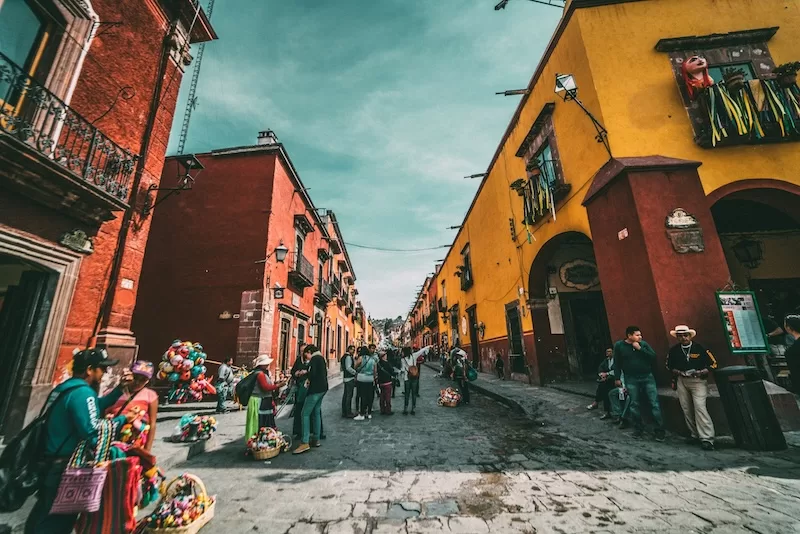
Costa Rica
Best for: Stable, eco-conscious residency with strong social systems and tropical diversity.
Target Audience: Retirees, remote workers, and sustainability-minded families seeking long-term residency in a politically stable democracy.
Main routes & minimums:
• Pensionado Visa: Lifetime pension of $1,000/month. PR after 3 years; citizenship after 7 years.
• Rentista Visa: Guaranteed $2,500/month income for two years or equivalent bank deposit. PR after 3 years; citizenship after 7 years.
Taxes: Residents are taxed only on Costa Rican-sourced income; foreign earnings are exempt. Incentives apply for retirees and digital workers.
Lifestyle: Costa Rica is one of the happiest and greenest countries on earth. From Pacific beaches to volcanic valleys, daily life revolves around outdoor living, coffee culture, and Pura Vida (its untranslatable motto of contentment).
Pros: Strong democracy, residency to PR in 3 years, renewable energy leadership, quality healthcare.
Cons: High import costs; bureaucratic slowness in public offices.
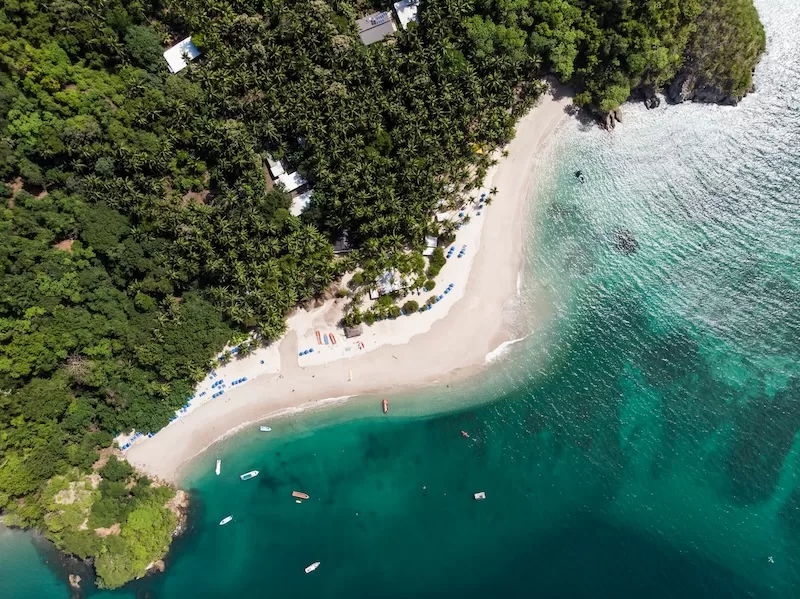
Thailand
Best for: Long-term, low-cost Asian residency with flexible long-stay options and global travel access, and healthcare excellence.
Target Audience: Remote professionals, retirees, and investors seeking tropical comfort and modern infrastructure.
Main routes & minimums:
• Long-Term Resident (LTR) Visa: 10-year structure via BOI; categories include Wealthy Global Citizen/Wealthy Pensioner/Work-from-Thailand/Highly Skilled. Some 2025 tweaks (e.g., income requirement removed for WGC in favor of $500k investment + $1m assets).
• Thailand Privilege Visa (formerly Elite): Membership program from THB 650,000–2.5M+ for 5–20 years.
Taxes: Residents are taxed on worldwide income, but remittance-based rules and treaties mitigate exposure. LTR visa holders enjoy streamlined tax and immigration procedures.
Lifestyle: Thailand offers diversity within reach: cosmopolitan Bangkok, creative Chiang Mai, and island life in Phuket or Koh Samui. Costs are modest, food culture is extraordinary, and the healthcare system rivals the best in Asia.
Pros: Easy entry via Privilege; LTR offers tax/admin benefits, affordable living, excellent medical care, and efficient connectivity.
Cons: Privilege is pay-to-stay, LTR paperwork is heavier, visa rule changes can be sudden; cultural adjustment may take time.
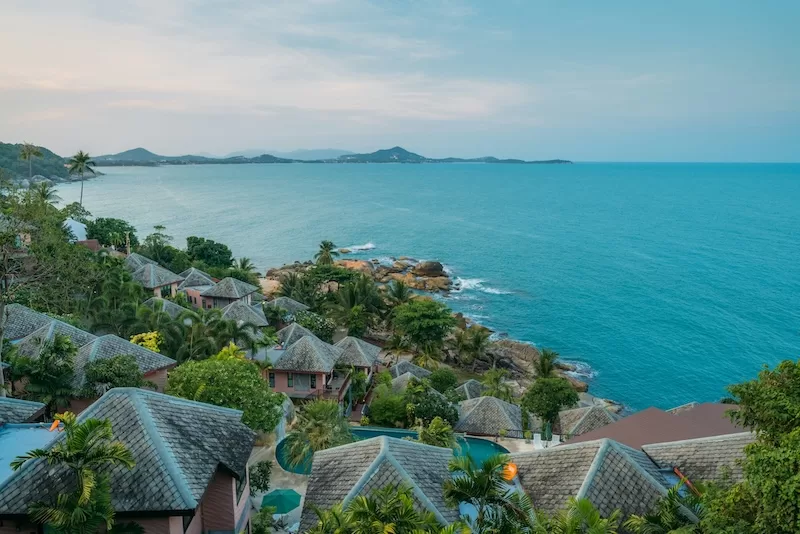
Paraguay
Best for: Simple, affordable permanent residency with quick processing and minimal bureaucracy.
Target Audience: Entrepreneurs, retirees, and global citizens looking for a low-cost, low-tax second base in South America.
Main routes & minimums:
• Permanent Residency: Straightforward process requiring a local bank deposit of roughly US$4,000–5,000 or proof of modest income. No purchase or business investment needed.
• Citizenship Eligibility: After three years of legal residency (with some presence required), though processing may take longer in practice.
Taxes: Paraguay follows a territorial system, taxing only income earned within the country. Foreign income, capital gains, and worldwide earnings are exempt. The personal income tax rate for local income is a flat 10%.
Lifestyle: Peaceful, safe, and highly affordable. Asunción has grown into a pleasant, green capital with cafés, reliable internet, and a friendly business environment. Outside the city, rural life is calm, with warm locals and a subtropical climate. English is limited but Spanish is easy to learn, and bureaucracy is refreshingly light.
Pros: Easiest and cheapest permanent residency in the Americas, no global income tax, citizenship possible in three years.
Cons: Limited international flight connections, fewer high-end amenities outside the capital, integration requires basic Spanish.
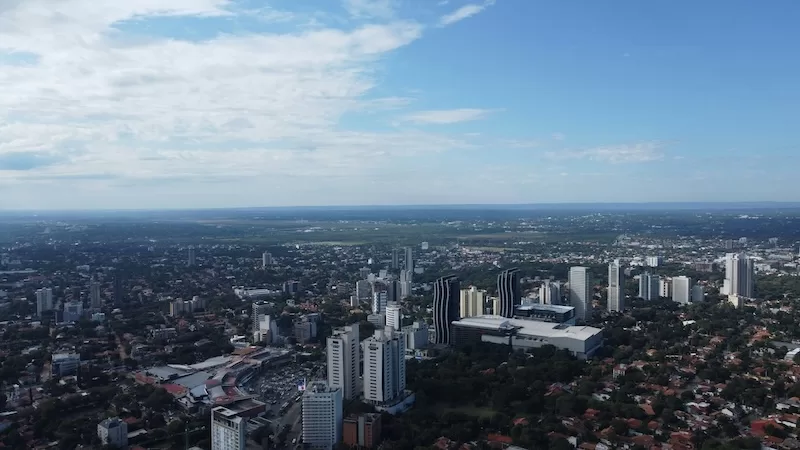
Mauritius
Best for: Long-term tropical residency with clear investment routes and one of the world’s simplest tax regimes.
Target Audience: Investors, professionals, and retirees seeking year-round warmth, political stability, and access to both African and Asian markets.
Main routes & minimums:
• Retired Non-Citizen Permit: Proof of US$1,500/month foreign income transferred locally.
• Occupation Permit (Investor): US$50,000 minimum investment in a business.
• Permanent Residency Permit: Available after three consecutive years of holding an Occupation or Residence Permit.
Taxes: Flat 15% personal and corporate tax, with no capital gains or inheritance tax. Mauritius also offers over 40 double-taxation treaties and full repatriation of profits.
Lifestyle: Mauritius is a rare mix of island beauty and real-world functionality. Beaches are postcard-perfect, but the island also has top private schools, modern healthcare, and excellent roads. English and French are both official, and expats blend easily with locals in a multicultural, tolerant society.
Pros: Transparent tax regime, no capital gains or estate taxes, English-speaking, politically stable, high standard of living with tropical climate.
Cons: Cost of living above average for the region, island logistics (many goods are imported), property prices rising due to foreign demand.
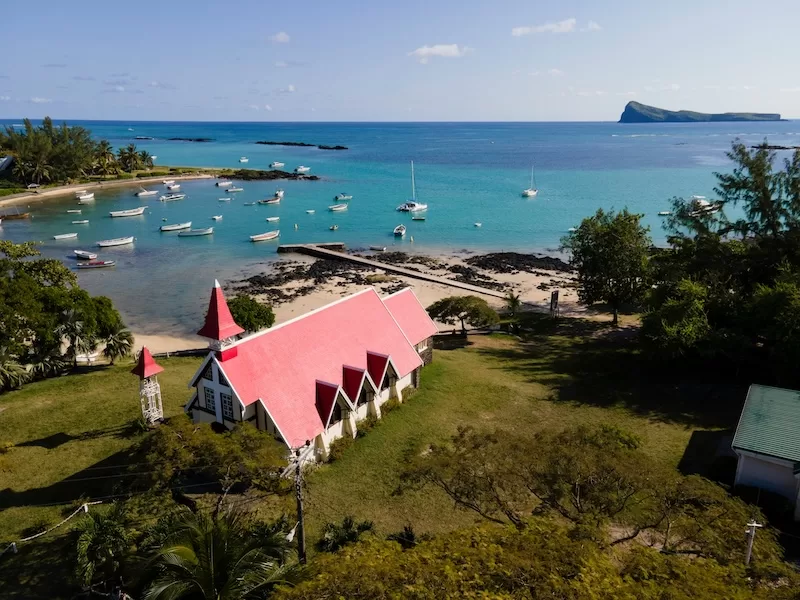
Georgia
Best for: Flexible, affordable residency with low taxes and strong appeal for remote workers and entrepreneurs.
Target Audience: Digital nomads, freelancers, and small business owners wanting an easy European-Asian base.
Main routes & minimums:
• Temporary Residence Permit: Granted through local property ownership, employment, or registered business.
• Digital Nomad Option (Remotely from Georgia): Minimum US$12,000 annual income; simple online application.
• Permanent Residency: Eligible after six years of continuous residence.
Taxes: Extremely business-friendly. Individuals can register as Small Business Entrepreneurs and pay only 1% tax on gross revenue up to roughly US$150,000/year. Nonresidents are taxed only on Georgian-sourced income.
Lifestyle: Georgia sits at the crossroads of Europe and Asia: mountains, wine valleys, and vibrant cities like Tbilisi give it unusual texture. It’s safe, affordable, and social. Internet speeds are fast, and the cost of living is low, making it a digital nomad magnet. The culture is open and generous, with a strong food and wine tradition.
Pros: 1% small business tax rate; easy registration, low cost of living, simple visa-free entry for many nationalities, fast-growing expat and tech scene.
Cons: Bureaucracy can be unpredictable, limited direct flight options outside major hubs, winter can be harsh in the mountains.
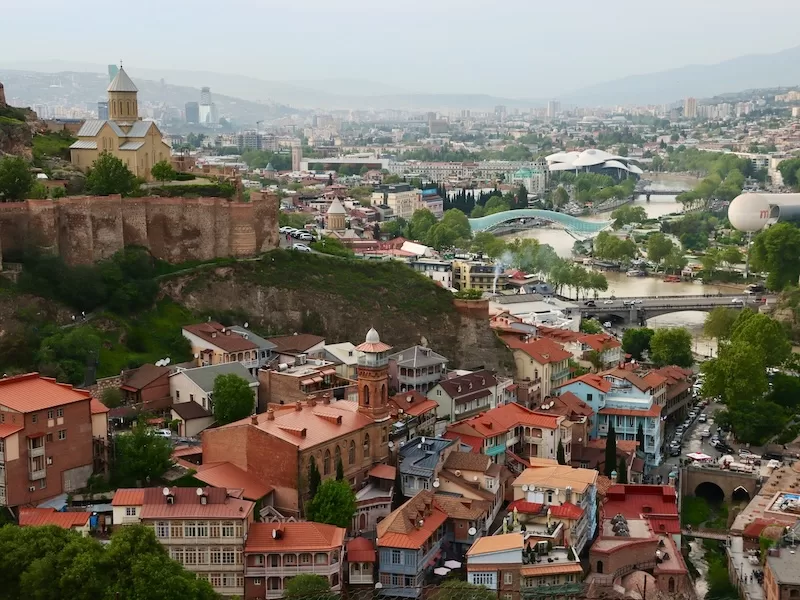
Read More Like This: Why Securing Second Residency Is Crucial to Your Escape Plan
Quick-compare table
| Country | Main Route(s) | Minimum Income / Investment (2025) | Tax Angle (Summary) | Time to PR / Citizenship |
| Portugal | Golden Visa, D7 | GV: €500k funds / D7: €870+ monthly income | Progressive EU tax; NHR 2.0 (IFICI) for high-skill expats | PR renewable; citizenship in ~5 years |
| Spain | Digital Nomad, NLV | DN: ~€2.8k/month / NLV: €28k+/year | Beckham Law: flat 24% on ES-source income for 6 years | PR in 5 yrs; citizenship after 10 yrs |
| Greece | Golden Visa, DN | GV: €400k–€800k (zones) / DN: €3.5k/month | Standard EU tax; 50% exemption possible for 7 years | Long-term PR; citizenship ~7 yrs |
| Malta | MPRP | €500k in assets (property + contribution) | Remittance-based; untaxed foreign income not remitted | PR immediately; citizenship optional via separate route |
| Cyprus | PR by Investment | €300k property/funds + €50k/yr income | Non-dom regime; foreign income exempt | Fast-track PR (~3–6 months); citizenship ~7–8 yrs |
| UAE | Golden Visa, Remote Visa | AED 2M property / $3.5–5k monthly income | No personal income tax; 9% corp. tax over AED 375k | 10-year renewable visa; long-term PR |
| Panama | Pensionado, Friendly Nations | Pension: $1k/mo / FNV: $200k property or deposit | Territorial system; foreign income tax-free | PR within months; citizenship after 5 yrs |
| Belize | QRP Program | $2k/mo income + 30 days stay | Exempt from foreign income and capital gains tax | Long-term stay; PR after 5 yrs (separate) |
| Mexico | Temp / Perm Residency | Temp: $4.1k/mo or $68–70k savings / Perm: $7k+/mo or $280k savings | Worldwide income taxed if resident; treaties apply | PR after 4 yrs temp; direct perm possible |
| Costa Rica | Pensionado, Rentista | Pensionado: $1k/mo / Rentista: $2.5k/mo (2 yrs) | Territorial taxation; foreign income exempt | PR after 3 yrs; citizenship later |
| Nicaragua | Pensionado, Rentista | Pensionado: $600/mo / Rentista: $750/mo | Territorial system; foreign income not taxed | PR after 5 yrs; citizenship after 5–7 yrs |
| Thailand | LTR, Privilege Visa | LTR: $500k invest + $1M assets / Privilege: THB 650k–2.5M | Worldwide income taxed if remitted; LTR tax perks | LTR valid 10 yrs; Privilege 5–20 yrs |
| Paraguay | Permanent Residency | ~$4–5k bank deposit or proof of modest income | Territorial system; no tax on foreign income | PR immediately; citizenship in ~3 yrs |
| Mauritius | Occupation / Retirement Permit | $50k invest (business) / $1.5k monthly income (retiree) | Flat 15% tax; no CGT or inheritance tax | PR after 3 yrs of residence; renewable |
| Georgia | Temporary / Small Business / DN | ~US$12k annual income (DN) or property ownership | 1% small-business tax up to $150k; territorial elements | Temp PR renewable; full PR ~6 yrs |
Key Takeaways:
- Fastest PR routes: Malta, Cyprus, Paraguay
- Best low-tax residencies: UAE, Paraguay, Mauritius, Georgia, Panama
- Strongest EU lifestyle options: Portugal, Spain, Greece
- Most affordable long-term residencies: Paraguay, Georgia, Nicaragua, Thailand (LTR)
- Top tropical living options: Mauritius, Belize, Costa Rica, Panama, Nicaragua
Taxes: what actually moves the needle
A second residency can unlock new lifestyle options, but it can also reshape your entire tax profile. Here’s what really matters once you go beyond the headlines.
• “No income tax” ≠ “no paperwork.”
Zero-tax jurisdictions like the UAE sound simple, but banks and immigration still need proof of income, health coverage, and a legal address. Expect compliance checks for anti–money laundering and KYC purposes. You won’t pay tax, but you’ll need clean documentation.
• Spain’s Beckham regime: strong but not absolute.
The program can cap Spanish tax at a flat 24% on local income for six years, with most foreign income excluded, yet you’re still a Spanish tax resident and must file annually. It’s a great middle ground for remote employees of foreign companies, but not a full exemption.
• Portugal’s NHR era is over: IFICI replaces it.
The old Non-Habitual Resident program closed to new entrants in 2024. The new IFICI regime (NHR 2.0) targets specific professions: scientists, tech specialists, educators, and R&D investors. It’s selective, not a universal tax holiday. Always model your specific case before moving.
• Territorial systems reward international earners.
Countries like Panama, Paraguay, Mauritius, and Georgia tax only what’s earned locally. For globally mobile professionals, that means legally earning abroad while paying little or no local income tax, as long as you structure it correctly and consult a cross-border tax advisor.
• EU vs. non-EU contrast.
In the EU, tax residency usually triggers reporting on worldwide income, but programs like Malta’s remittance basis or Greece’s newcomer exemptions soften the blow. Outside the EU, territorial models dominate: simpler, but with trade-offs like fewer social benefits or higher insurance costs.
Lifestyle fit (snap takes)
• Urban EU families:
Spain, Portugal, and Malta have good schools, modern healthcare, and reliable flights. They are ideal for families who want safety, community, and Europe-wide travel without giving up convenience.
• Entrepreneurs & remote executives:
Spain’s Digital Nomad Visa with the Beckham regime offers structure and stability inside the EU, while the UAE’s Golden Visa combines zero income tax with world-class infrastructure and air links to everywhere.
• Investors seeking permanence:
Malta’s MPRP, Cyprus PR, and Greece’s Golden Visa are the go-to programs for those wanting a tangible EU foothold via property or funds. The investment thresholds have risen but so has long-term value and Schengen mobility.
• Retirees chasing sunshine on a budget:
Panama’s Pensionado, Belize’s QRP, and Mexico’s temporary residency all deliver affordability, simplicity, and cultural warmth, proof that good weather and good living don’t have to break the bank.
• Digital nomads and small business owners:
Georgia and Mauritius stand out for their simplicity: 1% small-business tax in Georgia and flat 15% in Mauritius. Both offer high-speed connectivity, low bureaucracy, and an easygoing pace of life for entrepreneurs who prefer freedom over paperwork.

FAQs
Q1: Is Spain still a top pick for remote workers?
Yes. Income thresholds rose in 2025 (~€2,750–€2,800/month), but Spain remains a strong choice thanks to its Digital Nomad Visa and the Beckham regime, which allows qualifying expats to pay a flat 24% tax on Spanish-source income for six years.
Q2: Did Portugal kill the Golden Visa?
No. The real estate route ended, but funds, R&D, and cultural investment options remain open. The NHR program closed in 2024, replaced by IFICI (NHR 2.0), a targeted regime for specific high-value professions.
Q3: What changed in Greece?
Investment thresholds rose to €400k–€800k depending on the zone, with €250k reserved for restoration and conversion projects. The Digital Nomad Visa continues to attract remote earners with moderate income requirements.
Q4: Fastest EU PR by investment?
Malta MPRP and Cyprus’s PR program remain the most direct. Both provide PR from the start, but Malta’s is Schengen-accessible, while Cyprus’s is not (yet).
Q5: UAE Golden Visa in one line?
Purchase AED 2M+ property (or invest through other approved routes) for a 10-year visa; Dubai also offers a remote-work visa with clear income and insurance requirements.
Q6: Which countries have no tax on foreign income?
Panama, Paraguay, Mauritius, Georgia, Belize, and the UAE all use territorial or zero-tax systems, meaning income earned abroad is generally exempt. Always confirm with a qualified cross-border tax advisor before relocating.
Q7: Which programs are best for retirees?
Panama’s Pensionado, Belize’s QRP, and Costa Rica’s Pensionado programs are the easiest and most affordable. All three offer residency with proof of modest monthly income and low physical-stay requirements.
Q8: Can I include my family in these applications?
Most programs allow spouses and dependent children to be added under the same residency. The UAE, Spain, Greece, and Malta all offer streamlined family inclusion, while Belize and Panama may require separate paperwork.
Q9: Which countries lead to citizenship the fastest?
Paraguay and Uruguay (not listed but comparable) offer potential citizenship after about three years of legal residence. In the EU, Portugal and Spain typically require five to ten years, depending on nationality and integration.
Q10: What are the most affordable options overall?
Paraguay, Georgia, and Mexico’s Temporary Residency program stand out for low costs and straightforward applications. All offer long-term stability without large investments.
Q11: Can I hold multiple residencies at once?
Yes, in most cases. Many investors hold dual or even triple residencies (for example, a Golden Visa in Europe plus a territorial residency in Panama). The key is to manage tax residency carefully: where you spend over 183 days usually determines where you owe taxes.
Q12: Which countries are easiest to maintain with minimal time-in-country?
Panama, Belize, UAE, and Paraguay require little or no physical presence to keep residency active, making them ideal for globally mobile investors.
What To Do Next (Your Playbook)
Getting residency abroad isn’t complicated once you break it into smart, deliberate steps. Here’s how to move from research to reality.
1. Define your goal.
Start with why: are you optimizing taxes, securing a Plan B, working remotely, or planning for retirement? Knowing your purpose helps narrow your options from 20 countries to two that truly fit your life.
2. Run a “tax pre-mortem.”
Before you fall for a sunny brochure, model your tax scenario for both your home country and your destination. U.S. citizens, in particular, should watch for PFICs, CFC rules, and potential exit taxes. A one-hour consultation with a cross-border CPA can save years of headaches.
3. Verify current rules.
Residency programs change quietly and often. Always confirm requirements through the official government or consular website, not third-party blogs or YouTube videos. Minimums, fees, and income thresholds can shift year to year.
4. Get your documents in shape.
Most applications rely on the same core set: proof of income, bank statements, contracts or pension records, private health insurance, and a clean criminal record. Apostille and translate everything in advance: bureaucracy moves faster when you’re organized.
5. Plan your timeline and presence.
Residency clocks start ticking when you land, not when you apply. Many programs renew every 1–2 years before leading to permanent residency. In the EU, citizenship often requires physical presence and language competence, so build those stays into your life plan.
6. Combine strategy with lifestyle.
The best plan balances comfort with compliance. Maybe your EU residency gives you mobility, while a territorial base like Panama or Mauritius manages your tax exposure. Think in systems, not single destinations.
Read More Like This: 10 Reasons to Gift your Kids with a Second Residency or Citizenship
Balancing Lifestyle and Tax
The smartest residency choices strike a balance between efficiency and enjoyment. A low tax rate means little if you don’t like the rhythm of life it buys you, and a dreamy location can turn sour if bureaucracy or cost of living outweighs the benefits. The question isn’t just how much you save, it’s how you live.
If your goal is security and diversification, start with stable, territorial systems like Panama or Paraguay.
If you value network and access, the EU programs in Portugal, Spain, or Greece deliver mobility and healthcare, but at higher cost. And if you want freedom and flexibility, look at Georgia, Mauritius, or the UAE, where compliance is light and infrastructure is world-class.
Ultimately, second residency is a design choice for your next chapter. The right one should make both your numbers and your daily life add up.
Want more insights on second residencies and guidance on finding the right fit? Subscribe to our newsletter and stay current on the newest programs, rule changes, and strategies for building your Plan B and living it well.
About the Author
Escape Artist’s Editorial Assistant Carla Rodrigues is a writer, editor, and creative strategist with a passion for helping ideas travel as far as people do. After building a career that spans storytelling, marketing, and international development, she joined Escape Artist to craft narratives that inform and inspire anyone ready to live beyond borders. Based in Portugal, Carla brings both creativity, precision and lived experience to her work, turning complex topics about relocation, investment, and global living into stories that feel personal, practical, and full of possibility.
Contact Author
"*" indicates required fields
Stay Ahead on Every Adventure!
Stay updated with the World News on Escape Artist. Get all the travel news, international destinations, expat living, moving abroad, Lifestyle Tips, and digital nomad opportunities. Your next journey starts here—don’t miss a moment! Subscribe Now!

